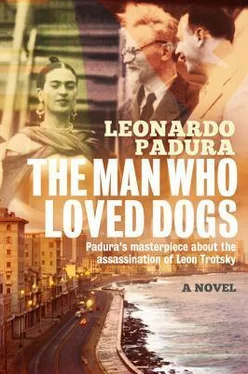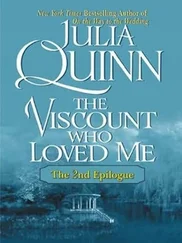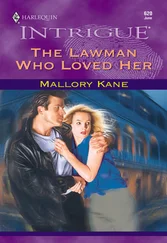“They say he fell there, in the middle of the street. Everyone thought he had been killed, because he wasn’t moving, but suddenly he stood up, spit, scratched his head, and went back upstairs to continue handing out blows.”
“And then they say we’re savages.” Eitingon smiled as they resumed their walk. They made a stop at the Sardinka beer hall, where Spanish refugees tended to satiate their alcoholic thirst, because of the wise prohibition of serving any of that flammable substance within the confines of the Casa.
The war of blows between the Spanish Communists ended with the arrival of the militia, who emptied the place, Ramón went on. At the same time, the reasons for its foreseeable continuation disappeared that same night, when a KGB unit took away the files full of the fratricidal revelations for safekeeping.
An hour later, when they came out at Dzerzhinsky Square, Ramón looked at the statue of the founder of the Cheka out of the corner of his eye and at the most feared building in the Soviet Union, behind the bronze man.
“Did I tell you I was also down there?” Leonid said, again in French, pointing at the Lubyanka’s basement with his nose. “I don’t know how long, but it was the worst time of my life. . Yob tvoyu mat!” he exclaimed with an anger from deep inside, and Ramón didn’t know if he was cursing the building or the bronze idol.
“Ever since I got to Moscow, it has always seemed odd to me that that statue survived the reforms.”
“They had enough work with the statues and busts of Stalin. There were millions throughout the country. In Georgia, where Stalin was bloodier, since it was where they knew him best, there were mobs when they tried to take down the largest ones. The people were already so used to living under Stalin, to playing by his rules, that they were afraid that somebody could think they had approved of the demolition of those statues! Do you realize what fear can do when it turns into a way of life? To fill the millions of holes left by the removed statues of Stalin, they had to produce hundreds of statues and busts of Lenin.”
They crossed the square, and when they got to Kirov Street, Eitingon entered a liquor store and came out with two bottles of vodka. On Petrovsky Boulevard, they looked for an empty bench. Before sitting down, Leonid slapped his limping leg three times while he called it suka and took his first drink. He put two fingers to the base of his neck, asking for company, but Ramón rejected the invitation. The sun was starting to set and the afternoon was becoming cool. When he saw Eitingon lounging comfortably, he wondered if a drink wouldn’t do him some good, although he preferred to wait.
“What happened with the Casa de España files and the power disputes among the Spaniards reminded me of something that you surely don’t know,” Eitingon said, and had a second drink. “When Stalin died, a lot of things happened in very little time. Beria, Khrushchev, Bulganin, and Malenkov went right into action and practically the first thing they did was send a special group from the Ministry of the Interior to gather all of Stalin’s belongings and files that were in the Kuntsevo dacha and in his offices at the Kremlin. Svetlana, Stalin’s daughter, had the pass taken away from her with which she could enter her father’s offices, and until last year, when she finally managed to flee from the Soviet Union, she always said that Khrushchev and Beria had stolen Stalin’s treasures.”
“What treasures was she talking about?”
“There were no treasures. What need for money or jewels does a man have who is the lord and master of an enormous country and all it contains? And when I say everything, it’s everything: the mountains, the lakes, the snow, the airplanes, the petroleum, even its people — the life of its people. . It’s true that there were many silver objects, especially busts and plaques he had been given, but all of those were sent to a foundation. The furniture, the china, the rugs, and those things were distributed to different places. It was decided that the History Institute’s Section for the Family conserve his marshal’s uniform and some samples of the gifts workers gave him every day. But the majority of his clothing wasn’t worth anything, some was fairly worn-out, and what didn’t get thrown out was donated to centers for handicapped veterans.”
“So there was no money?”
“There was. Those in charge of the operation were overwhelmed by the amount of envelopes with bills that were everywhere. Stalin earned a salary for each one of his ten posts, but as he didn’t have to buy anything, not even to give gifts or host parties. . But that money didn’t make anyone rich, and what my companions were looking for were documents. Those seeking power, without telling each other, were afraid that a testament like Lenin’s would appear, which would complicate things for some of them and benefit others. That was why they decided, like knights, to take all of Stalin’s papers out and burn them so that none of them would have the advantage or disadvantage of having been selected or rejected by Stalin.”
“And how do you know all of this?”
Leonid took another swig and Ramón held out his hand to take the bottle. He needed a drink.
“When I recovered a little, after getting out of jail, I began to work with Beria. They made me part of that team and I was one of the ones who, after the burning of the papers, found, in a drawer of a table in the office of the Kremlin, some letters that had been hidden under newspaper. There were five — just five letters — and it appears that Stalin read them from time to time. One was the one dictated by Lenin on March 5, 1923—I can’t forget the date — in which he demanded an apology from Stalin for having insulted his wife, Krupskaya. Another one was from Bukharin, written shortly before he was executed, in which he told Stalin how much he loved him. . And there was one, very short, written by Marshal Tito, dated 1950, I believe, but I remember perfectly well what it said: ‘Stalin, stop sending assassins to liquidate me. We’ve already caught five. If you don’t stop, I personally will send a man to Moscow and there will be no need to send another’. .”
“So did anyone ever find out that Stalin’s papers had disappeared?”
“Nothing has ever been said officially, of course. But besides the personal documents, there were what were called ‘special files,’ a supersecret record where laminated documents were kept and which could only be viewed if Stalin himself authorized it. These were kept and I imagine that within them there must be some reports that are too uncomfortable, because nobody yet knows where they are, if they still exist. Hopefully, one day they will be able to be read, because on that day we’re going to discover that the earth is not round. .”
“For example?”
“Stalin’s pacts with Hitler and later with Roosevelt and Churchill. Or do you think that the partition of Europe was done just like that, à la ‘I got here first and this is mine’—style? How can you explain that the Communists didn’t come to power in Italy or Greece when they were the strongest party after the war? Or the Poles — do you think that the Poles are Communists and love us like brothers?”
Eitingon lifted the bottle, but something stopped him. He was serious, silent, until he said:
“Do you think they’ll ever knock down Lenin’s statues as well?”
Ramón looked at the river, where the sun was setting, and asked:
“Was our thing in those files?”
Eitingon at last took his drink and rolled down a little bit more on the bench. Suddenly he seemed relaxed.
“No, our thing never appeared. First of all, because almost nothing was written, and what was written went directly to Stalin’s personal files. Beria told me that, at regular intervals, the Undefeated Leader sat down in front of the stove to burn what he had in Kuntsevo and turned the papers he thought should never be read into smoke. That’s what I call having a good sense of history. We, like many other parts of history, went to the clouds, Ramón, sent there by our dear Comrade Stalin.”
Читать дальше











